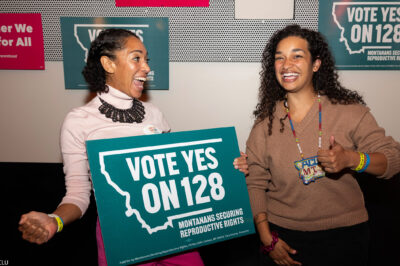The focus in ab-only-until-marriage programs is just that, no sex until marriage. This mantra doesn't fit with the reality of the statistics:
Median age at first intercourse for women: 17.4
Median age at first marriage for women 25.3
Median age at first intercourse for men: 17.7
Median age at first marriage for men: 27.1
So are we really surprised that teens are being dishonest about their sexual history?
Highlights from the article after the jump.
Teenagers who take pledges to remain virgins until marriage are likely to deny having taken the pledge if they later become sexually active. Conversely, those who were sexual active before taking the pledge frequency deny their sexual history, according to new study findings.
These findings imply that virginity pledgers often provide unreliable data, making assessment of abstinence-based sex education programs unreliable. In addition, these teens may also underestimate their risk of exposure to sexually transmitted diseases.
Previous research shows that survey respondents tend to answer questions about sexual activity according to their current beliefs, particularly if their current attitudes conflict with their past behaviors.
In the initial survey, about 13 percent of adolescents reported that they had taken a pledge of virginity. Just one year later, however, more than half of this group said they had never taken such a pledge, Rosenbaum reports in the American Journal of Public Health.
In addition, more than 1 in 10 students who reported being sexually active in 1995 said that they were virgins in 1996. Students who reported they were sexually active in second survey were more than three times as likely as their peers to deny they had taken a pledge of virginity.
The adolescents' denials of virginity pledges and sexual histories were associated with changes in their sexual and religious identities, the report indicates.
For example, adolescents who abandoned a born-again Christian identity were more than twice as likely as their peers to say they had never taken a virginity pledge.





